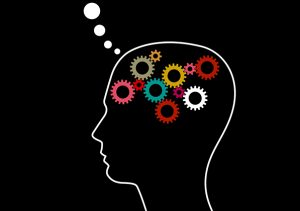The Value of Depression
 There is a problem with the conventional wisdom about mental illness. The conventional wisdom is that mental illnesses are caused by chemical imbalances, genetic dynamics and brain abnormalities. That belief encourages people to ignore the meaning of the symptoms and deprives people of an opportunity to learn valuable lessons about themselves, lessons that can help them live more the way they want to live.
There is a problem with the conventional wisdom about mental illness. The conventional wisdom is that mental illnesses are caused by chemical imbalances, genetic dynamics and brain abnormalities. That belief encourages people to ignore the meaning of the symptoms and deprives people of an opportunity to learn valuable lessons about themselves, lessons that can help them live more the way they want to live.
If you accept the conventional wisdom, you have no interest in exploring the meaning of the symptoms or listening to what they may have to tell you. Rather, you are encouraged to get rid of the symptoms as quickly as possible and pay no further attention to them. But what if those symptoms had important information for people, information they need in order to lead healthy, fulfilling lives?
If you believe in evolution and natural selection you would conclude that the symptoms must have some survival value, must be useful in some ways. Were they not useful, they would have been wiped away by natural selection a long time ago. After all, human beings have been evolving for about 30 million years, the estimated time since humans split off from the other members of the primate family. Any human faculty which has lasted for 30 million years must be useful to our survival and well-being in some way.
If that is true, let’s look at some of the symptoms of mental illness and see how they might be useful to us.
Here are the symptoms that are used to diagnose the most common mental illness – depression. (Yes folks, the symptoms that are listed below, and nothing else, are used by doctors, psychologists and psychiatrists to diagnose clinical depression). You would think – considering the conventional wisdom about mental illness – that there was a more “medical” way of diagnosing depression, a blood test or brain scan. But no, the way it is diagnosed is the doctor, psychiatrist or other mental health professional asks the patient to give a self report on the following questions:
- Have you felt sad or empty most of the day, nearly every day for the past two weeks?
- Have you experienced a markedly diminished interest or pleasure in all, or almost all, activities most of the day, nearly every day for the past two weeks?
- Have you experienced significant weight loss when not dieting or weight gain (a change of more than 5 % of body weight in a month) or increase or decrease in appetite nearly every day for the past two weeks?
- Have you experienced insomnia or hypersomnia (excessive sleep) nearly every day for the past two weeks?
- Have you experienced psychomotor agitation (jittery, jerky, jumpy stomach) or retardation (slowed down, sluggish, groggy) nearly every day for the past two weeks?
- Have you felt fatigue or loss of energy nearly every day for the past two weeks?
- Have you experienced feelings of worthlessness or excessive or inappropriate guilt nearly every day for the past two weeks?
- Have you experienced diminished ability to think or concentrate, or indecisiveness, nearly every day for the past two weeks?
- Have you experienced recurrent thoughts of death, recurrent suicidal ideation without a specific plan, or a suicide attempt or a specific plan for committing suicide?
If the patient responds “Yes” to five or more of those questions and if those symptoms are causing significant distress or impairment in social, occupational or other important areas of functioning, the patient is diagnosed with clinical depression.
So if we assume that these symptoms must have some survival value, how might they be useful? What might be going on with a person who is experiencing these symptoms? It sounds as if s/he is very upset about something. Something is not going right in her life. Something is threatening her ability to live the way she wants to live, to love the way she wants to love, to work (express herself) the way she wants to work. Something precious has been lost. He is concerned about his life, where it is going. Is it the job, the relationship, the kids, the demands of parenting, his social status? He’s not going to live forever. Maybe he needs to do something about it.
It sounds as if s/he’s under a lot of stress or, perhaps shutting down after being under a lot of stress for a long time. Perhaps this is the body’s way of protecting itself from prolonged stress. There are worse things that could happen – a heart attack, a stroke, cancer. In fact, research has found a strong link between high levels of stress and depression.
This sounds like a wake-up call, a message that something is not right and something needs to be done about it. The bodymind is saying: “Stop doing what you’re doing. Stop focusing on the outer world, on other people, on your spouse, your clients. It’s time to quiet down, go inside, take a serious look at your life, get in touch with what is going on. Stop avoiding this by drinking, drugging, working, playing, sexing, competing, winning. You need to make some important decisions or, perhaps, accept what is true about you and your life and become more comfortable with it. You need to do some inner work.”
Perhaps this is a reaction to the loss of something that is very precious. It wouldn’t have to be the loss of a person, a job, financial security or a relationship. It might be the loss of youth, or certainty or a sense of comfort. If something precious has been lost, perhaps it would be healthy to spend some time experiencing the pain of that loss.
How could the painful experience of loss be helpful? If I believe that all human faculties which have survived through the 30 million years of human evolution have to be useful, that is an obvious question. And an answer that makes sense comes to me. Loss is useful because it tells me what is precious to me. It tells me in a visceral way what I want to protect and nurture and tells me in a very powerful way that I better do what I can to protect and nurture those precious things. Valuable information indeed.
What if depression is a state of being that forces people to take a look at their social relationships and that gives them impetus to do something about changing them? That is the hypothesis of Paul Watson, a behavioral ecologist at the University of New Mexico:
“It induces us to be attentive to the structure of our social network: Who has power? Who has what opinions? How do these opinions of different social partners interact to constrain or enable us to make changes in life? Depression may have a social planning function which helps us to plan active negotiating strategies in a sober, ruminative state so we can go out and actively negotiate ourselves into a better social position with the people who have power to help or hinder us.”
Edward Hagen, an evolutionary biologist, has a similar idea. In the ancestral situation, when humans lived in small hunter-gatherer tribes, depression may have had value in compelling other people in one’s life to make changes that were in one’s interest – to induce the members of one’s tribe to come to one’s aid. In his book Care of the Soul, Thomas Moore has a chapter entitled “Gifts of Depression”. Here is one of them:
“Depression grants the gift of experience not as a literal fact but as an attitude toward yourself. You get a sense of having lived through something, of being older and wiser. You know that life is suffering, and that knowledge makes a difference. You can’t enjoy the bouncy, carefree innocence of youth any longer, a realization that entails both sadness because of the loss, and pleasure in a new sense of self-acceptance and self-knowledge. This awareness of age has a halo of melancholy around it, but it also enjoys a measure of nobility.”
Medical researcher Antonio Damascio found that people who couldn’t feel bad couldn’t make good use of their reasoning powers. In his book Descarte’s Error, he describes his work with people who couldn’t process feelings because of lesions in the amygdalas of their brains. Not being able to feel bad, they were unable to make good decisions about their finances, business practices, relationships, etc. They might buy a stock and see that it was losing value. But, not feeling bad about it, they wouldn’t take any corrective action.
So I am suggesting that, when we experience the symptoms of depression, we would do well to spend some time and effort wondering about what has brought them on? Have I lost something that is valuable to me? Am I concerned about my life, my love relationships, my work, my ability to enjoy life and live the way I want to live? Am I concerned about myself, my ability to work effectively, to pursue a satisfying career, to maintain satisfying love relationships? Have I been under stress for a long time? If so, what is causing the stress response?
But wait a minute. Let’s not get too sanguine about this. Depression is associated with suicide. It is a very debilitating disease. Severe depression keeps people from doing any of the things that make life worth living – loving, working, playing, expressing, enjoying. Let’s be careful not to make light of a debilitating and dangerous state of being.
Yes, we need some balance here. Perhaps, depression is like many things which are good and useful in moderate amounts but dangerous and deathly in extreme amounts. Included in that list would be the stress response, alcohol, strychnine and water, among others. Perhaps what makes sense is to make a distinction between moderate depression and severe depression. Perhaps keeping severely depressed people from killing themselves, hurting others or falling into permanent disability calls for extreme measures – psychotropic drugs, treatment in psychiatric hospitals.
Balance makes sense. But that’s not where we are today. Today, more and more people respond to symptoms of moderate depression by ingesting antidepressant drugs, drugs which make it harder for them to experience the emotions and thoughts which might be valuable to them. Antidepressants are among the five most heavily prescribed drugs in the United States. People are going to psychiatrists and other doctors. The doctor asks them the nine questions. If they answer “Yes” to five or more of them, the doctor writes a prescription. There is no time spent exploring what might be going on in the person’s life or how they are responding to their lives that might explain the symptoms.
Most of us don’t have the luxury of taking off two or three days to spend in that kind of contemplation. But we could find some time during every day to quietly allow ourselves to experience what is going on inside. We could even take some vacation time or sick leave to spend several days on it, perhaps with the help of friends or a therapist.
If you decide to do that, here are some suggestions.
- I would recommend that you find a psychotherapist to work with, somebody with whom you feel comfortable, who you sense will respect you and help you come up with your own answers. There is something healthy about being able to say things to another human being that you have not said to anyone else, to let your hair down and expose yourself, knowing that nothing you say or do will go out of the room. There is value in becoming more comfortable with the symptoms and looking for the meaning and potential usefulness in them. Becoming more accepting of what is true about yourself is profoundly healing. Therapists can help you do that.
- I would recommend that you spend some time just sitting by yourself in quietness, perhaps using some of the simple relaxation or meditation exercises that you can find on the internet or in various books (my favorite is the mindfulness meditation of Jon Kabat-Zinn). Just sitting and noticing whatever thoughts or feelings come up and paying some attention to them – not necessarily hanging onto them or doing anything with them – just noticing them.
- I would recommend that you do some things that are enjoyable – perhaps reading books or articles that you want to read and definitely getting some good exercise – running, walking, bicycling, swimming, skiing.
The bottom line is that I urge you to regard the symptoms, no matter how painful and debilitating, as a message of meaning, a message that contains valuable information that can help you live a healthier and more satisfying life. And I encourage you to make an effort to understand the meaning of the symptoms and to use the information they offer to live more the way you want to live.
Tags: depression, depression benefits, fighting depression, treating depression









Thank you for this!
I am suffering from Depression at the moment. This article helps to see Depression from another perspective. Many thanks for that!
Who wrote this? Why is there no byline? Why is it anonymous?
The author is Dr. Al Graves, his bio is to the right of the post.